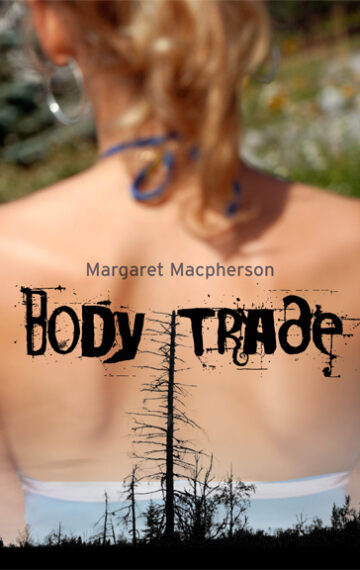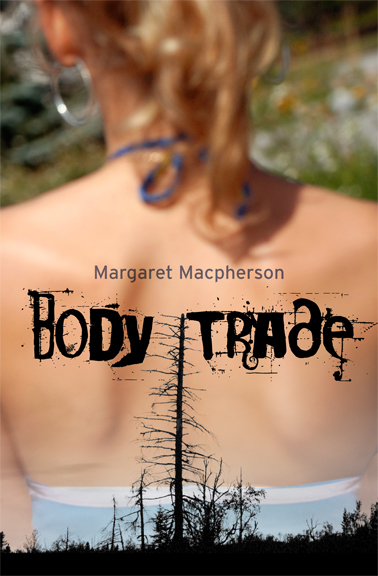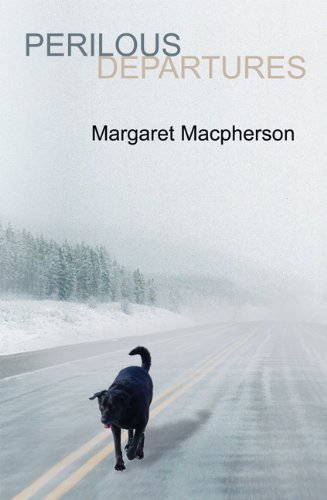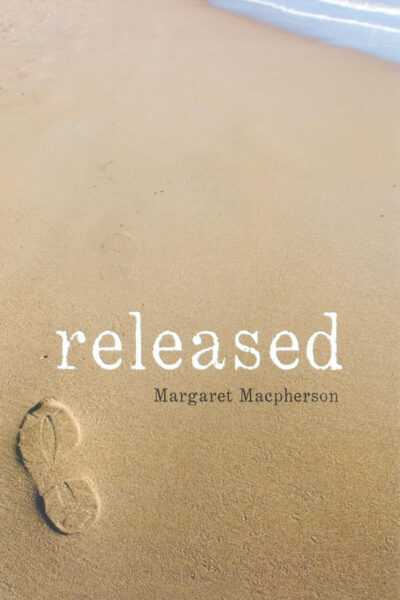
- Publisher: Signature Editions
- Available in: paperback, eBook
- ISBN: 9781897109601
- Published: September 1, 2012
*Winner of the 2012 DeBeers NorthWords Prize for Best Book
Body Trade weaves together two stories of survival. The main narrative follows Rosie and Tanya, two young Canadian women who decide to leave the Northwest Territories and head south on an ill-conceived road trip through California, Mexico and Central America. The story takes a life-defining twist when their search for freedom and adventure brings them into contact with predators of the Central American sex trafficking trade. The girls’ journey into unknown and dangerous territory is punctuated with scenes from a plane crash in the far North, underlining the novel’s themes of survival, betrayal, epiphany and hope. In a deeply personal narrative that explores power, sexual manipulation, cultural consumption and trust, Body Trade asks the ultimate question: To what terrifying places will we journey, and at what cost, in order to save our own lives?
Reviews
“The body is gone. People are milling around the church basement, visiting, relieved and happy that Lloyd can go directly into the ground. No hanging with the other stiffs in the ice house, waiting for the permafrost thaw. Nope, none of that for Lloyd. He’s somehow managed a summer accident. Cleaner. Faster. Probably the only clean thing Lloyd ever did.”
Now that is a great opening for a novel. It’s swift, it’s clean and it establishes a strong narrative voice, that being Tanya, the 20-something tough girl who many at the funeral suspect had something to do with Lloyd’s death. Yes, she was having a fairly clumsy affair with Lloyd and, yes, she was working the bar the night he headed off drunk in his truck, but, no, she didn’t kill him.
That doesn’t stop Tanya from deciding that maybe a little time away from Yellowknife and the Northwest Territories might just do her and Lloyd’s grieving widow a world of good.
Meanwhile, we meet Rosie, an Inuit girl, barely more than a teenager, living unhappily in residential school. Her parents are dead, her brother’s in jail and she’s been apprehended by social services.
Rosie and Tanya meet with the usual young person awkwardness and discover a common discomfort with their surroundings and a desire to get out.
That’s all it takes, and the two gather up their work money, roll out Tanya’s Rambler and head south, destination Mexico just because they’ve heard of it and it’s warm.”
It is 1973, the year after the northern crash of a mercy flight, with bush pilot Marten Hartwell having emerged as the sole survivor. This novel by Edmonton author Margaret Macpherson focuses on the journey of the two women, with the crash as a parallel story. By weaving together the two narratives, one factual, the other fictional, Macpherson delivers an intriguing tale with contemporary themes that ring true more than 40 years later.
Hartwell was taking a nurse, a pregnant Inuk woman and a 14-yearold Inuk boy from Cambridge Bay to Yellowknife for medical help. When the plane crashed, the nurse and woman died on impact, and the boy lived for nearly three weeks by eating lichen. Hartwell was eventually rescued. The subsequent inquiry, loaded with controversy and followed by the international press, is “blowing through Yellowknife like a bad spring snowstorm.” The extraordinary lengths people go to for survival is a central theme of Body Trade.
On the long road trip with many detours, Tanya and Rosie form a bond, which strengthens as they drive south and get into all sorts of predicaments. When their car breaks down, they hitchhike and sleep in all-night laundromats and make a happy detour to Disneyland. But dangers lurk ahead. As two women adrift, with only vague plans, they are open to both adventure and misadventure, mostly in the form of ne’er-do-well men they hook up with along the way. Eventually they make it to Mazatlan.
Macpherson’s story is ambitious, and tackles many issues: racism, class struggles, female friendship and white-aboriginal realities. Some of these efforts work, others don’t. The clash of the white and aboriginal points of view is sharply defined, and Macpherson effectively uses the metaphor of the landscape to describe these differences. For the whites, “the school year in Yellowknife is like the Mackenzie, one huge muddy brown river of kids that flows fast and furious in and out to school, needing to be fed morning, noon and night.” As the women drive south, Rosie marks down in her notebook the names of all the rivers they cross. The rivers came first, then the towns, she explains to Tanya.
Rosie’s trusting, sweet nature and her total lack of cynicism are no defence against the threats of the world. But through her, the reader learns a lot of the Indian way of life. Tanya, though more experienced, makes serious errors in judgment. The combination does not add up to a happy ending.
A hellhole in the jungles of Belize is the ultimate destination for these two women, and like the pilot Hartwell, they have to find a way to stay alive.
Body Trade is an unusual story that offers a unique look at the Canadian North and the people who live in it, escape from it or survive its harsh realities.”
“Two young women decide to blow their small, northern Canadian town and head south: the United States, Mexico and finally, Belize. The year is 1972. A carefree adventure becomes deadly serious for Tanya (experienced, pragmatic, overly confident) and Rosie (younger, naive, overly sensitive) in Margaret Macpherson’s new novel, Body Trade (Signature Editions). Impossible decisions must be made. “I’ve always had the title in my head,” Macpherson says. “I wanted to talk about the flesh trade. The idea of physical, human flesh. “Tanya’s a body girl,” she adds. “Tanya needs to be in charge, in control. She was a fun character to write. I loved her energy, her fuck-you attitude. “But I like Rosie, too. She’s so pure. Sex is a very tender thing to her.” As the two head further south, the novel becomes increasingly dark. “I like to call it Thelma and Louise meets Apocalypse Now,” Macpherson says. “They are in the Heart of Darkness. “It was a tough book to write, but I had to write it.””
Tanya and Rosie meet in 1972 at a Yellowknife residential school, where Tanya is the daytime secretary and Rosie is a cleaner. Rosie’s grandmother and mother are now dead and her brother is in jail. The young women are drawn together by their desire to escape Yellowknife. For Rosie, their connection is also spiritual, something she accepts without question. Tanya, however, never fully honours or understands that bond. The opening chapters set up an angel/whore dichotomy, and despite Macpherson’s beautifully poetic prose, some readers may find this approach blatant, especially later in the novel where the narrative offers repeated examples of virgin sacrifice. But one of Body Trade’s triumphs is its collage of contradictions.
Tanya and Rosie leave Yellowknife driven by the promise of a warm winter on the beaches of Mexico. They journey south in a 1960 Rambler until it breaks down in San Francisco. They bus around Mexico, staying in the cheapest—not the safest—places they can find. When they run out of money, they travel in the back of a truck to the newly independent Belize, lured by the promise of jobs at a plush resort. Instead, they become captives.
Macpherson uses a life-threatening situation to build to the novel’s climax. The scenario will no doubt provoke readers to think of other, much-publicized examples of violence against women. As it concludes, the novel takes some unexpected turns and culminates in an astonishing denouement. Readers will have to decide for themselves whether the ending is believable.
Throughout the narrative, this skilled author builds strong and at times gut-wrenching tension, using the threat of sexual exploitation in the sinister corners of San Francisco, East LA, Mexico City, Guadalajara and, finally, Placencia (Belize). That Macpherson manages to weave in larger subjects such as betrayal, cultural erasure, disappeared women and the effects of imperialism only highlights her abilities.
Body Trade is Macpherson’s seventh book; she has also published four works of non-fiction, a collection of short stories and a novel. Macpherson shares with Robert Kroetsch, Rudy Wiebe and Aritha van Herk an intimate love of landscape, but Body Trade reaches beyond our borders to tell a universal tale.”
And if a writer has genuine star quality, a sharper, deeper radiance than most, then he or she ought to be identified and celebrated without delay.
Time may be of the essence. Margaret Macpherson, a relatively unknown Maritime-born Albertan, is such a writer, and Body Trade, her seventh book and second novel, is the proof. She writes with the psychological insight of Carol Shields, the gravitas of Margaret Atwood, the poetic reflexes of Earl Birney and the earthy eroticism of Leonard Cohen, but her voice remains uniquely her own.
Body Trade, released by the Winnipeg literary house Signature Editions, is a haunting road novel best described as a poetic thriller grounded in the real world.
Macpherson also has one distinct advantage: her natural territory is comparatively untouched as literary landscape. She is a non-aboriginal native of the Northwest Territories, known vaguely to Canadians as “the North” and to readers around the world, if at all, as a new planet of undefined stretches of white space — snow, ice, fog, the cold. There is powerful mystery here, and Macpherson knows it.
That is where her story begins, when two young women come together in their desperation to escape what could only be their bleak northern futures.
Tanya is white, mid-20s, a hard case who has earned enough money as a bar maid to point her aging Rambler to the sun and beaches of Mexico; Rosie is Dogrib, still in her teens, a product of residential schools, and orphaned except for a brother in jail.
For her, a companion and a car are the equivalent of a magic carpet.
It’s 1972 and feminist energy is new, full of confidence and promise. The two girls, an unpredictable, mixed-race Canadian variation of Thelma and Louise, set off on a journey that will descend into a hell on earth beyond their combined ability to imagine.
The hostility of extreme cold slowly gives way to the suffocation of extreme heat, and the cultural exploitation of the northern forces to those of the South. There is little to smile at in Body Trade.
Macpherson goes back and forth between this fictional journey and another borrowed from actual history. In November 1972, a Beechcraft carrying native medical patients and piloted by bush pilot Martin Hartwell crash landed.
The only survivors, two men, one white and one native, were also forced to make choices that dictated whether they would live or die. In both the fictional and historical narratives, there will be only one survivor who will pay an unspeakable price for a second chance at life.
Body Trade keeps a tightening grip on its readers, racing to a final few chapters in which the heart pounds inevitably faster. The ending is an unexpected shock to the spirit.
The recent book marketing campaign that claimed that the world needs more Canada still lingers. To that should be added that Canada needs more Margaret Macpherson and writers like her, who offer sophisticated, substantive and poetic novels sure to keep an appetite for fiction alive and very well indeed.”
“I haven’t read a lot of road trip books (only Volkswagen Blues and On The Road come immediately to mind), but I love the idea of them. Body Trade has additional appeal to me as the road trip sets out from Yellowknife. It eventually winds up in Belize, but through flashbacks and a side story based on a real news event of the early 70s, the north maintains a strong presence.”


